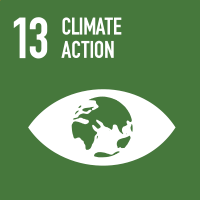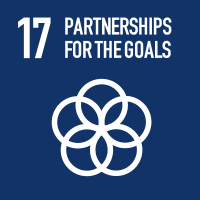Studying at the University of Verona
Here you can find information on the organisational aspects of the Programme, lecture timetables, learning activities and useful contact details for your time at the University, from enrolment to graduation.
Study Plan
This information is intended exclusively for students already enrolled in this course.If you are a new student interested in enrolling, you can find information about the course of study on the course page:
Laurea magistrale in Diritto per le tecnologie e l'innovazione sostenibile - Enrollment from 2025/2026The Study Plan includes all modules, teaching and learning activities that each student will need to undertake during their time at the University.
Please select your Study Plan based on your enrollment year.
1° Year
| Modules | Credits | TAF | SSD |
|---|
2° Year It will be activated in the A.Y. 2025/2026
| Modules | Credits | TAF | SSD |
|---|
6 modules among the following| Modules | Credits | TAF | SSD |
|---|
| Modules | Credits | TAF | SSD |
|---|
6 modules among the following| Modules | Credits | TAF | SSD |
|---|
Legend | Type of training activity (TTA)
TAF (Type of Educational Activity) All courses and activities are classified into different types of educational activities, indicated by a letter.
Global comparative law (2024/2025)
Teaching code
4S009797
Teacher
Coordinator
Credits
6
Also offered in courses:
- Global comparative law of the course Combined Bachelor's + Master's degree in Law
Language
English
Scientific Disciplinary Sector (SSD)
IUS/21 - COMPARATIVE PUBLIC LAW
Period
2° periodo lezioni (2A) dal Feb 12, 2025 al Mar 25, 2025.
Courses Single
Authorized
Learning objectives
The course is included in the learning area Global dimension of legal phenomena, and aims at providing students with advanced legal knowledge of the global dynamics of legal phenomena and their functioning. A specialist in transnational law must be able to analyse global phenomena, including the more complex ones (socio-economic, political, related to climate change) by using methods and key concepts of modern comparative public law.
At the end of the course, the student be familiar with the analysis and the understanding of differentiated regulatory systems that complete the legal approach to environmental, social and economic sustainability, with particular reference to the multilevel and transnational functioning of modern law.
The student will acquire the ability to address and to solve real problems of the professional context in which he/she will operate by orienting his/her competence to the compliance and prevention of judicial conflict. He/she will be able to decode the practical consequences of the regulatory framework and to solve concrete problems – in written and oral form as well as through group work, and by resorting to the method of Problem Based Solving (PBS). Students will become familiar with the appropriate, specific disciplinary vocabulary, adopting the correct lines of reasoning and argumentation, and making independent judgments. The teaching method used is functional to the continuous learning and updating of acquired knowledge.
Prerequisites and basic notions
Knowledge (active and passive) of the English language.
Program
The course will be divided into three parts:
1. Face-to-face teaching (5 ECTS; 30 hours)
• Introduction: defining comparative law and globalisation;
• Comparative law: history and methodologies;
• Global law: universalism (SDG 17);
• Patterns of legal and climate change (SDG 13);
• Language of law and legal globalisation (SDG 16);
• Global governance: The Code of Capital (SDG 10);
• Rule of law (SDG 10);
• Transnational law;
• Legal transplants and covergence;
• Comparative law and development (SDG 10).
• Indicators and numerical comparative law.
Online teaching (1 ECTS; 6 hours):
students will deliver presentations on the topics related to the course.
Bibliography
Didactic methods
Lectures with slide support and resolution / discussion of selected cases in the classroom.
Student will be actively involved in the teaching, also delivering selected cases drawn from "M. Siems, P.J. Yap (eds.) The Cambridge Handbook of Comparative Law. Cambridge University Press. 2024".
Lectures will be held in presence.
The video recordings and any supplementary and supporting teaching materials will be made available to students who adhere to the PA 110 e lode protocol, and also, as envisaged by the University guidelines, to students who are in particular situations of fragility, with disabilities or suffering from learning disorders (following notification of and in coordination with the Inclusion Unit).
Learning assessment procedures
Exam for attending students
Students that have regularly attended classes will take an oral exam.
During the course, they will deliver a review of the suggested reading and at least one presentation related to one of the topics drawn from "M. Siems, P.J. Yap (eds.) The Cambridge Handbook of Comparative Law. Cambridge University Press; 2024".
The review and the presentation will be assessed in order to determine the final mark.
Non-attending students
Non-attending students are required to take an oral exam. The exam will consist of an oral discussion, aims at verifying the knowledge of the fundamentals of global comparative law.
Erasmus students
Erasmus students that have regularly attended classes are granted the possibility to write an essay on a topic agreed by the instructor.
Evaluation criteria
Knowledge of the course topics is ascertained through review and presentation; the ability to critically analyze theoretical concepts, through the oral test. The final vote will be expressed out of 30.
Criteria for the composition of the final grade
The final grade is made up based on the verification of the mentioned criteria. In addition to the notions acquired, the grade is given by the ownership of the technical language used, the ability to connect between topics and institutes, and the analytical and argumentative ability. For attending students, active participation in lessons is also taken into account, which provides additional points.
Exam language
English




